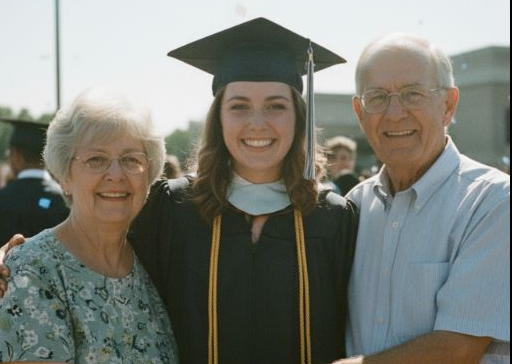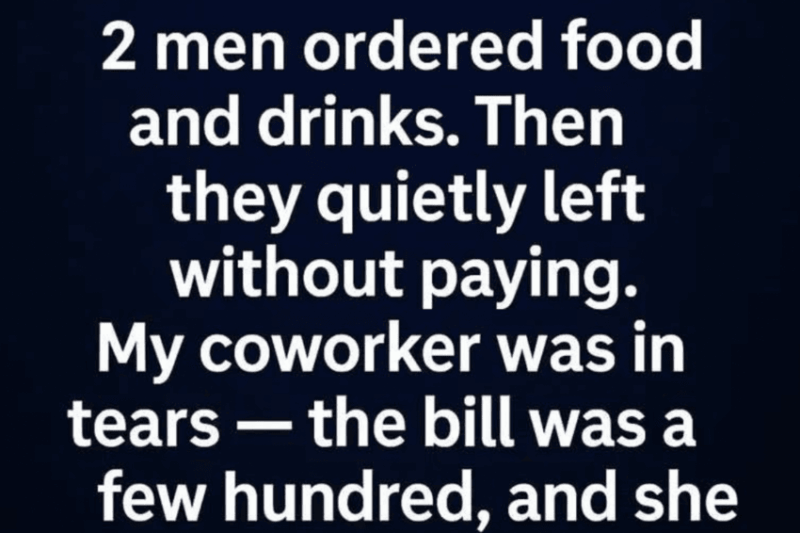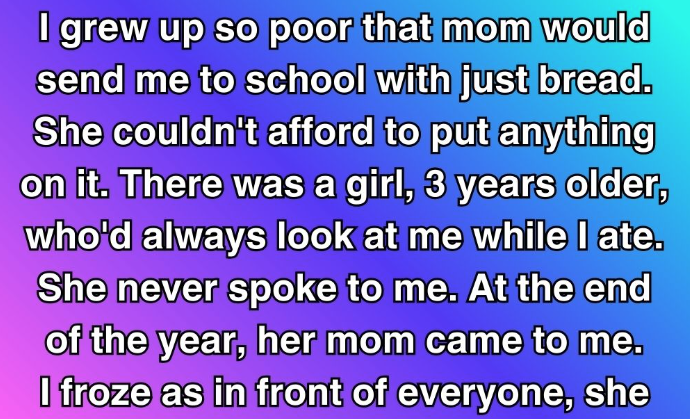Two weeks ago, I captured a photograph that holds deep meaning. My grandparents were the only ones present, their faces beaming with pride. They raised me, cheered the loudest at my milestones, and always expressed how much I meant to them. Then, in an instant, they were gone—both of them, without any forewarning or final words.
The funeral was serene, a quiet moment of reflection. That peace shattered during the reading of their will. They left everything to me: their savings, their home, and even their cherished photo albums. Suddenly, relatives I hadn’t seen in years—people who never once visited my grandparents—emerged, accusing me of deceit, claiming I coerced them, and threatening legal action.
Yesterday, one of those relatives appeared at the house with a moving truck, declaring, “This belongs to all of us.” I haven’t even touched my grandparents’ toothbrushes, unable to part with their presence in the home.
I thought about opening the door to avoid conflict, but memories flooded back: late nights when my grandparents comforted me through tears over school struggles, the years they saved to buy me a secondhand laptop for homework, their unwavering presence at every parent-teacher conference while the rest of my so-called family remained absent. So, I stood firm, closed the door, locked it, and trembled in the aftermath.
The house felt heavy with silence after he left. My grandfather’s cologne still lingered in the hallway, my grandmother’s lavender hand cream sat untouched on the bathroom counter, and their slippers remained neatly by the bed. Moving anything felt like admitting they were truly gone.
That evening, I sat at the kitchen table, their will spread before me. A letter in their shaky handwriting read: “We leave everything to you because you were our entire world. Never doubt that.” I read those words repeatedly, feeling their protection reach beyond the grave.
The next morning, my phone buzzed with messages from cousins I hadn’t spoken to in over a decade. One called me selfish. Another accused me of manipulating our grandparents. One even claimed I owed them money because “family shares everything.” I nearly laughed. Family shares everything? Where was that family when I was a child, pleading for someone to take me in after my parents vanished? Only my grandparents answered that call.
A week later, my aunt arrived at the house. Time hadn’t been kind to her, and bitterness sharpened her features. She didn’t offer a greeting, only pushed past me into the living room, standing with arms crossed as if she owned it.
“This isn’t right,” she said. “They shouldn’t have left it all to you.”
I reminded her she had her own home, her own life. She retorted that she deserved something—jewelry, furniture, a single photo. I pointed to the letter, where my grandparents made it clear: everything was mine, not out of malice, but because I was the one who stood by them through every moment.
Her expression softened briefly, as if she understood she had no claim. Then she said something that lingered: “You’ll regret holding onto it all. Greed never leads to happiness.” With that, she left.
Her words echoed in my mind for days. Was it greed to keep what they gave me? Or was it love, honoring their wishes? I wasn’t sure. But I knew I couldn’t let others trample the only true family I’d ever known.
Then came a thick envelope from a lawyer. My cousins were suing, claiming I unduly influenced the will. They wanted it overturned. My hands shook as I held the letter, but instead of tears, I laughed—a tired, incredulous laugh. They didn’t care about love or memories; they wanted the house, the money, the possessions.
With some of my grandparents’ savings, I hired a lawyer. He was steady and confident, assuring me the will was airtight. But lawsuits are draining, and my cousins knew it. Their goal wasn’t only to win—it was to exhaust me.
As the case lingered, I began exploring the house, not to pack it away but to reconnect with why I was fighting. In the attic, I found boxes of love letters my grandparents wrote to each other in their youth. In the garage, my grandfather’s tools gleamed, still meticulously organized. In their bedroom, a shoebox under the bed held ticket stubs from every school play, recital, and graduation I’d ever had. They kept every piece of me, even when the rest of the family forgot.
The greatest discovery came in a hidden drawer in my grandfather’s desk. A folder labeled “For When We’re Gone” held my heart in its grip. Inside were receipts, notes, and photos chronicling the years they raised me—hospital bills they paid, school supplies they bought, clothes they mended. At the top, a note in their handwriting: “If anyone questions why we left everything to you, show them this. Love always.”
I wept for hours. They had anticipated this fight and armed me with proof of their love—not greed, not manipulation, but devotion.
In court, I carried that folder. My cousins entered confidently, their smugness palpable. But when my lawyer presented the folder to the judge, their expressions crumbled. Page after page detailed my grandparents’ sacrifices for me and the absence of everyone else. The judge’s decision was swift: the will stood. Everything remained mine.
My cousins stormed out, muttering about appeals and vengeance. One lingered—my younger cousin, a faint memory from childhood. Quietly, she approached and said, “I’m sorry. I didn’t know they did all that for you. I only wanted something to remember them by.”
For the first time, my anger softened. I invited her to the house the next day. When she came, I gave her one of my grandmother’s knitted scarves and a photo of her as a baby in my grandfather’s arms. She cried, hugged me, and whispered her gratitude. It felt like something my grandparents would have wanted.
The others never stopped their complaints. More letters and threats arrived, but the case was closed. They had no power. The house, the savings, the memories—they were secure. More importantly, I was secure.
Months have passed. I’ve finally put away their slippers, though their hand cream and cologne remain in the bathroom. Some nights, I sit at the kitchen table, reading their old letters, feeling their presence guiding me. The house no longer feels like a weight—it feels like a treasure, a legacy.
Here’s the unexpected turn: I’m not keeping it all for myself. I’m transforming the house into a haven for children like me—those abandoned or forgotten by family. I’ve partnered with a local charity to establish a small foundation in my grandparents’ names. Their love will extend beyond these walls, touching others who need it most.
Ironically, the family called me greedy, accused me of hoarding everything. Yet, I’m sharing it in the most meaningful way—not with them, but with those who truly need it.
If my grandparents could see me, I believe they’d smile, maybe cheer as they did at my graduation, and tell me they’re proud.
The truth I’ve learned is clear: true family isn’t about shared blood or those who appear when money is at stake. It’s about the ones who show up in the quiet moments, the difficult nights, the times when you feel alone. When you have people like that—even if it’s only two grandparents who gave you their all—you honor them not by holding onto possessions, but by carrying their love forward.
Here I stand, holding their legacy, vowing never to let it fade.
If this story resonates with you, share it with someone who needs a reminder of what family truly means. If you believe love outshines greed, leave a like to spread the message.




